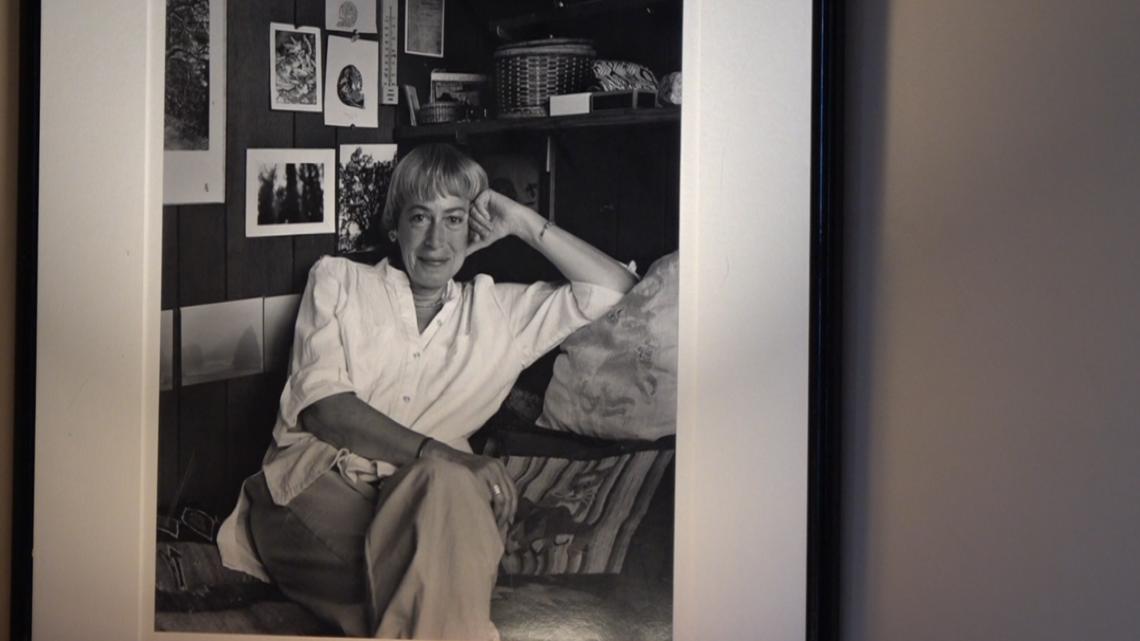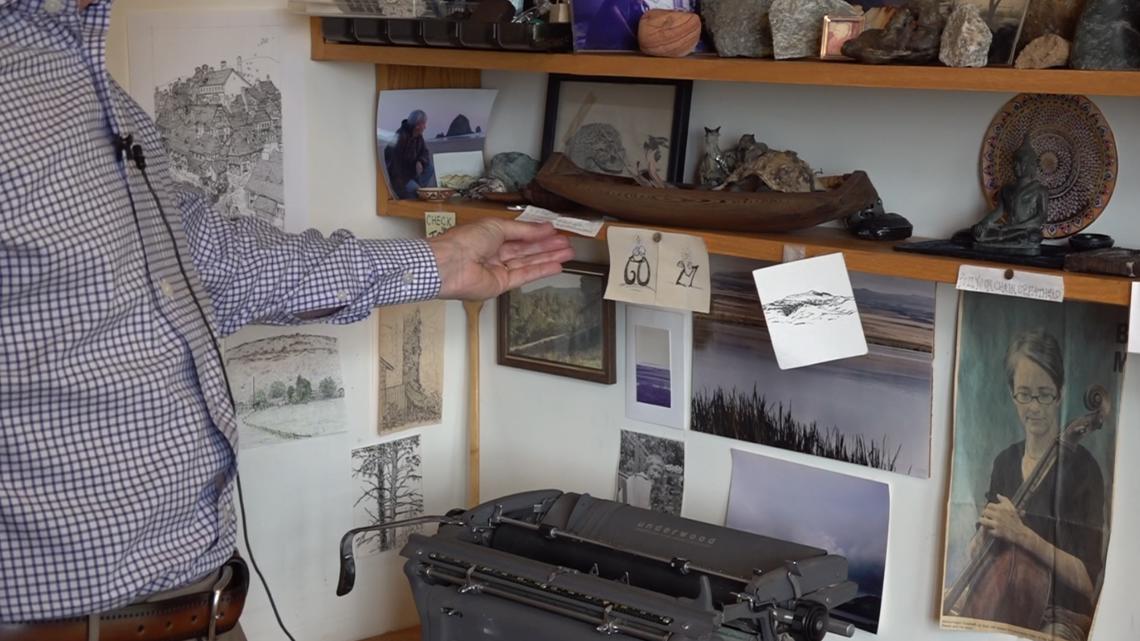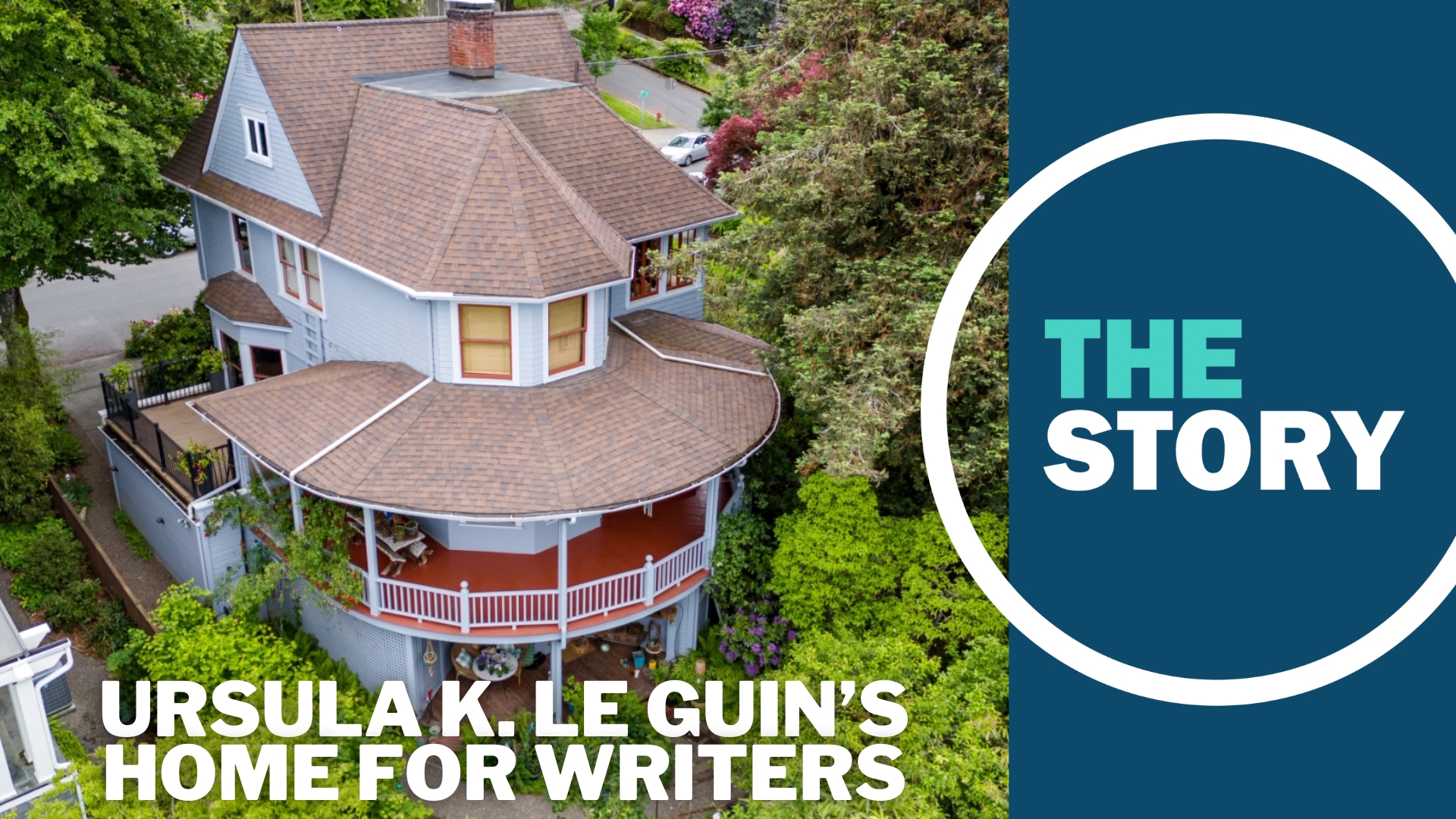PORTLAND, Ore. — To the rest of the world, Ursula K. Le Guin was a groundbreaking author, winner of the National Book Award and multiple Hugo awards, as well as a Pulitzer Prize finalist. But inside a home on Northwest Thurman Street in Portland, she was much more.
"She was, for me and my sisters, first a mother and secondarily a writer," said Theo Downes-Le Guin, son of the famous author.
She was also an activist, Downes-Le Guin said, who did her fair share of protesting in the 1960s and 70s.
At their home down the road from Forest Park, Le Guin wrote novels, poems, letters and blog posts, much of it from a little room at the end of the hall. She'd shut herself away in the study, sometimes for hours — letting the day-to-day worries fall to the wayside.
"She needed to write. It was her love, her need, her discipline," Downes-Le Guin said. "She was, by her own admission, not an amazing housekeeper, and she was very conscious about not doing the laundry or not getting things perfectly clean if that was going to eat away at her time to practice her craft."


Le Guin and her family moved to the Thurman Street house in 1960. It was a place for her to raise her kids, write and speak up for her beliefs.
"During the Iran-Iraq War, for example, The Oregonian would publish a count of fatalities on both sides every day, and she handwrote out the number in large text and posted it in a window that faces the street here," Downes-Le Guin remembered.
In 1993, she dedicated a project to her neighborhood, "Blue Moon over Thurman Street," a photo essay chronicling the lives of people living nearby.
"Street like a river, lives like fish. Minnow kids flash by. Trout souls rise. Everybody's nose upstream," Le Guin wrote in her accompanying poems. "Come for a walk with us up Thurman and see what's to be seen, and listen to some of the voices, too."
And one day soon this house up Thurman will be opened up for others to experience the magic that captivated Le Guin.
"We'll have a residency program here for writers from all over the world, with an emphasis on writers from the American West," said Andrew Proctor, executive director of the nonprofit Literary Arts.
The Le Guin family will be donating the house to Literary Arts, transforming it into a place for writers to work and live. The writer was involved with Literary Arts herself for more than 30 years.
"(It's) a chance to be away from their day-to-day lives, and to live in Portland, and to be focused on their work exclusively," said Proctor.
Much like Le Guin, who knew that sometimes you have to set the everyday things aside.


"She understood that what writers need is a place that is quiet, somewhat private, and separate from the day-to-day fray," said Downes-Le Guin.
When the residency opens up, a council made up of writers and literary professionals will choose who gets to come and stay. They'll receive a stipend to forward their work, and they won't be required to complete anything during their stay — it's a place to work, and a place to think.
"It just provides space and time, right, for a writer to come and work and live and have space to dream," said Proctor.
But these aspiring writers will need to be involved in the community in some way, just as Le Guin was.
"It's a way of talking about Ursula's legacy as sort of a citizen-writer artist, but also someone engaged in the day-to-day life of her community," Proctor added.
Through the Thurman Street house, Le Guin's family hopes that her legacy will live on through the writers who eventually call it home.
"I do think that houses have spirits, and that that spirit lives in this house and that we can continue to keep it there," said Downes-Le Guin.

